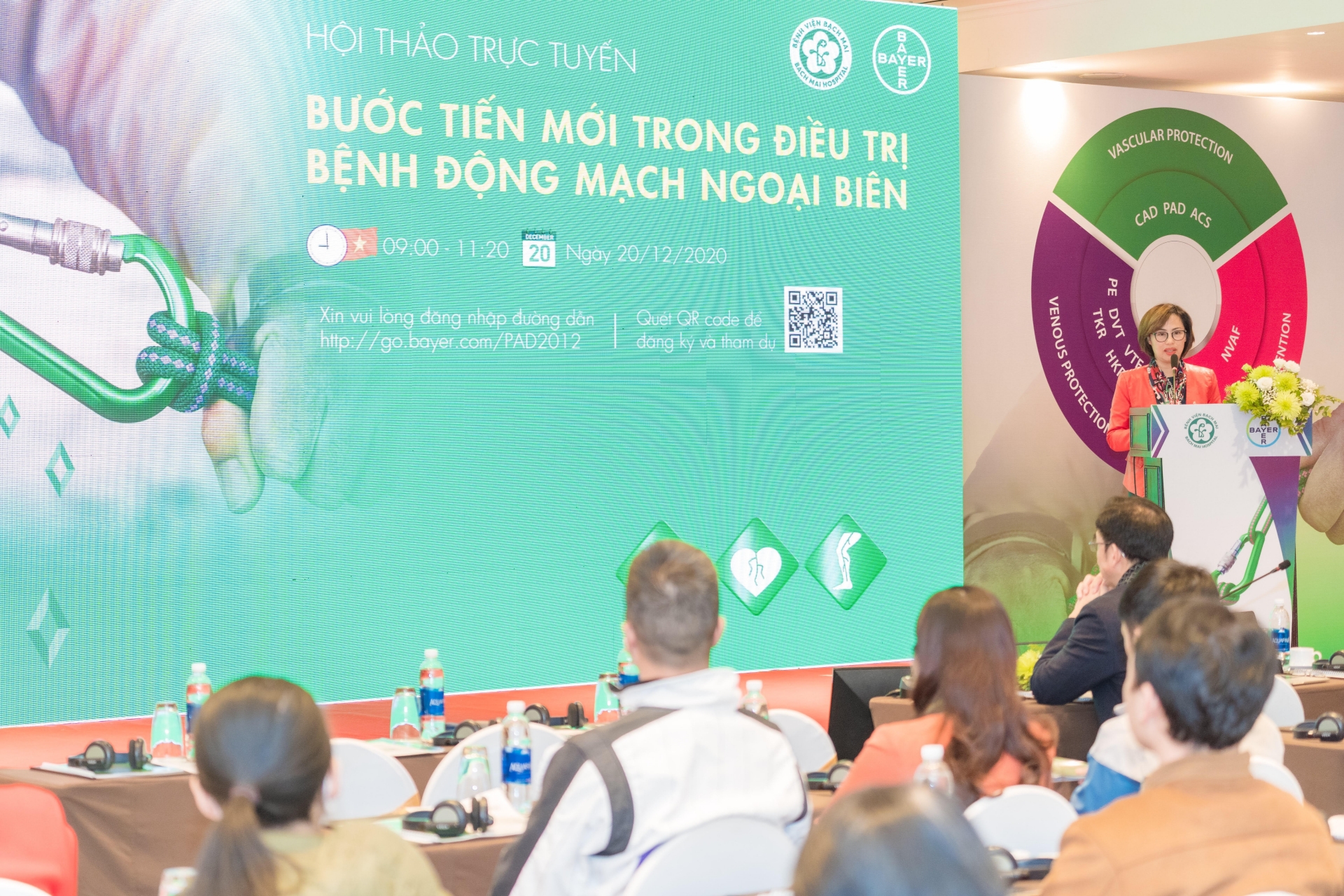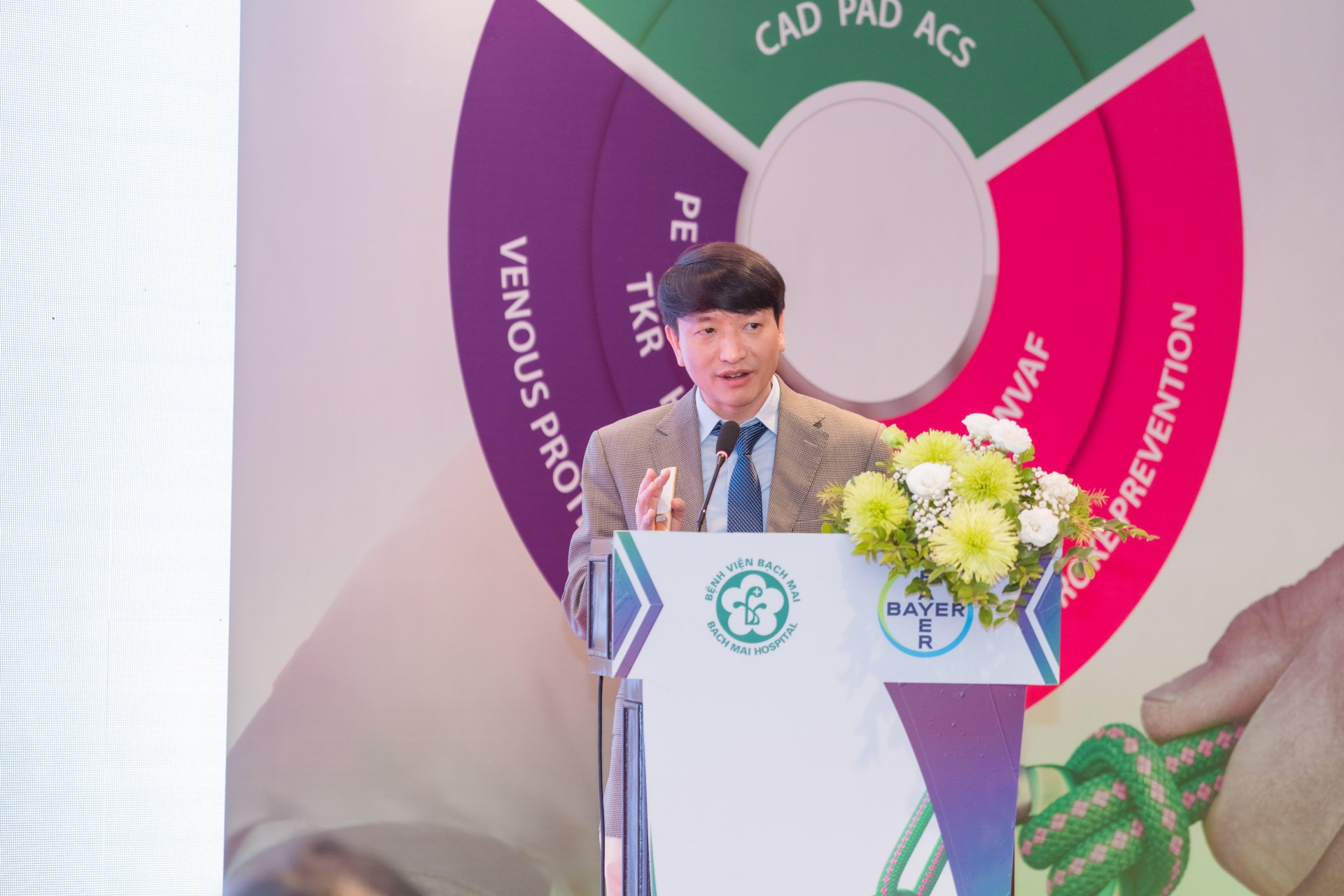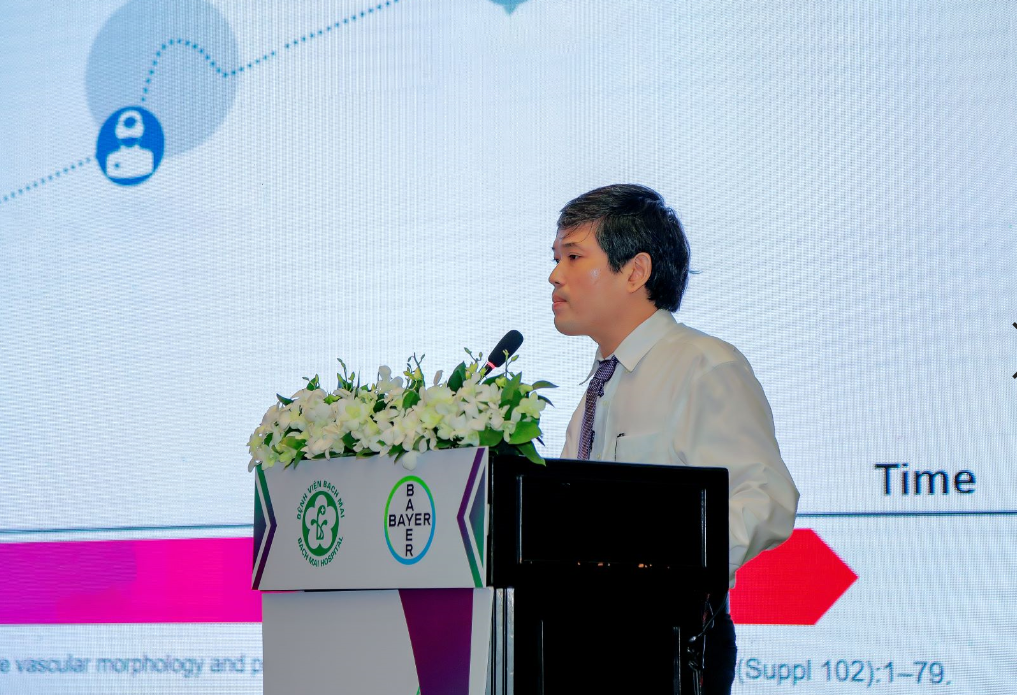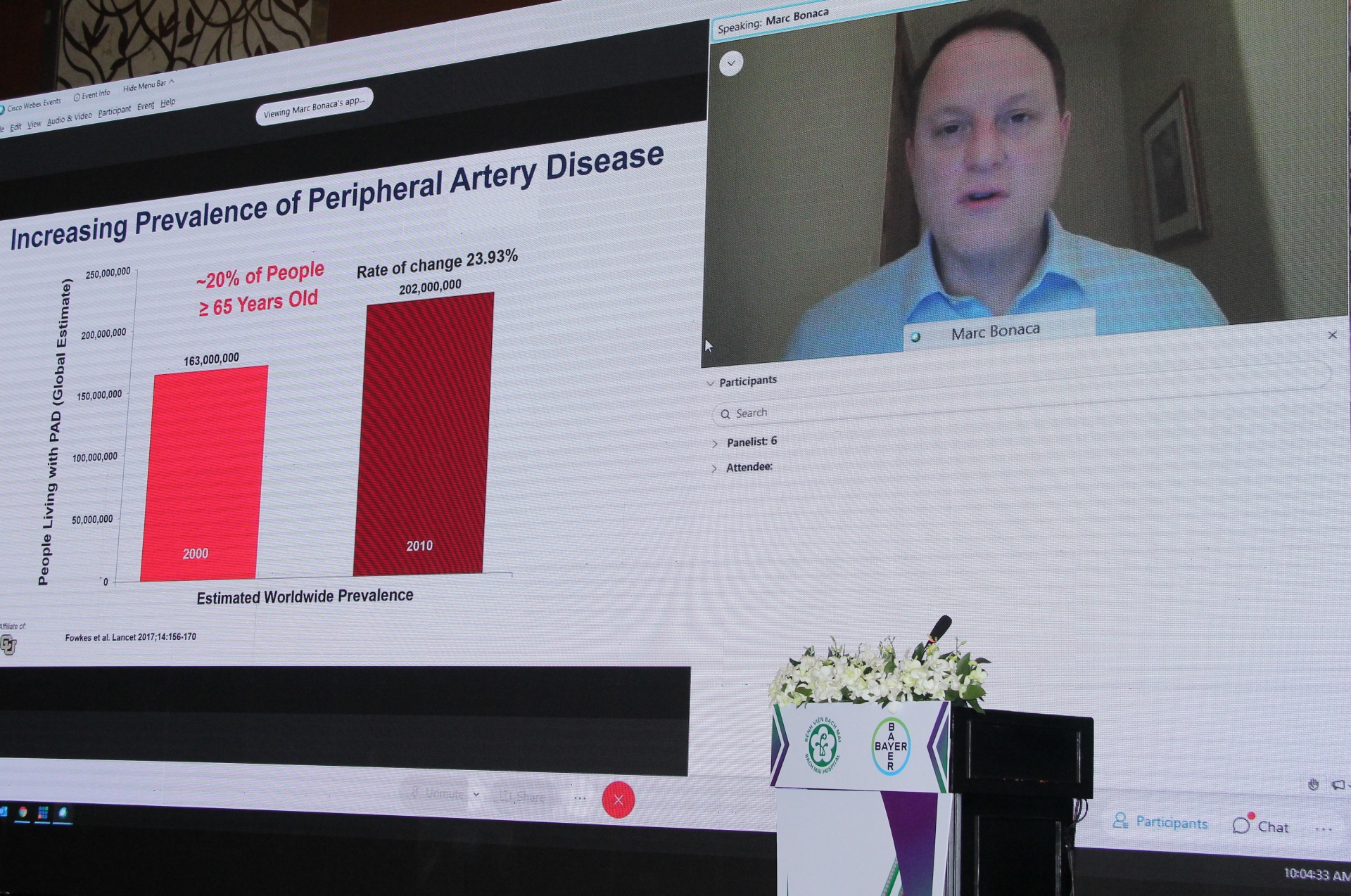Bayer Vietnam leads advances in management of peripheral artery disease
 |
| MD. MBA Tran Thi Lan Huong, Medical Director at Bayer Vietnam delivered welcome remarks at the hybrid medical scientific event “New Progress in the Management of Peripheral Artery Disease” |
On this occasion, Bayer has collaborated with Bach Mai Hospital to organise a hybrid medical scientific event for the medical community specialising in cardiology and vascular medicine, called New Progress in the Management of Peripheral Artery Disease. The seminar was held in both Hanoi and Ho Chi Minh City, as well as was broadcast online at the same time, providing a forum to discuss medical practices, unmet needs, and recent scientific data related to the management of PAD. At the event, Bayer introduced a new indication of NOAC as a solution for reducing major adverse cardiovascular and limb events in patients with PAD, marking a major milestone in the management of PAD in Vietnam.
PAD is a chronic, progressive disease in which narrowed arteries reduce blood flow, usually to the lower extremities. It is a growing concern that most patients with peripheral artery disease are asymptomatic. PAD patients often have disease in other arteries, such as the heart and brain. Patients are at risk for severe complications like stroke, myocardial infarction, and amputation.
According to statistics from Nature Review Cardiology, globally, 200 million people were estimated to have PAD in lower extremities in 2010. These studies indicated that the number of PAD patients accounted for the highest percentage in the middle-income and low-income countries in Southeast Asia, and the Western Pacific. In fact, PAD patients in Vietnam often get diagnosed only when they have leg pain even at resting, therefore, their prognosis tend to be worse than those of early diagnosed patients. In 2020, the field of peripheral artery disease has witnessed many new solutions and new treatment approaches for patients.
At the seminar, Bayer introduces new indication of NOAC for the treatment of PAD. The novel antithrombotic therapy for the management of PAD, termed dual pathway inhibition, combines vascular dose of NOAC with aspirin (ASA). The therapy has been recommended in the 2019 Global Vascular Guidelines jointly developed by the Society of Vascular Surgery (SVS), the European Society for Vascular Surgery (ESVS), and the World Federation of Vascular Societies (WFVS), as well as the European Society of Cardiology (ESC) guidelines for NSTE-ACS in 2020.
The new indication of NOAC vascular dose as the first and unique in its class has proven the possibilities for the simultaneous prophylaxis of cardiovascular and limb complications in PAD patients. NOAC, in combination with aspirin, has shown many advantages in the treatment of PAD patients compared to traditional therapy. In fact, compared to aspirin alone, the combined therapy reduces the risk of cardiovascular death, stroke, or myocardial infarction by 28 per cent and that of major adverse limb events, including amputation by 46 per cent, without increasing the rate of fatal or intracranial bleeding. As a result, PAD patients using NOAC with Aspirin can prevent some severe complications of the disease.
 |
| Panel discussion and Q&A on New Progress in the Management of Peripheral Artery Disease |
In recent years, Bayer has put great effort into developing treatments for patients suffering from PAD. In November 2017, the company applied for NOAC in combination with aspirin for approval by the European Medicines Agency for the management of PAD. In Vietnam, the collaboration between Bayer and Bach Mai Hospital is the first time the new indication of NOAC has been officially introduced. The new indication reflects Bayer’s long-standing commitment to improved prognosis and a better quality of life for PAD patients.
MD. MBA Tran Thi Lan Huong, medical director at Bayer Vietnam shared, “Cardiovascular diseases have become a severe problem in our society. Bayer is working in a wide range of areas on new treatment approaches for cardiovascular diseases. Globally, Bayer cooperates with research institutes and supports clinical research activities to ensure doctors have access to the latest treatments, so that patients will have access to the best possible medical therapies and services.“
“With this goal, we are honored to cooperate with Bach Mai Hospital to organise the scientific event New Progress in the Management of Peripheral Artery Disease. The seminar provided useful information to the medical community in Vietnam. We hope that Bayer's new solution can help reduce the number of patients suffering from thrombotic diseases, thereby helping Vietnamese people improve their quality of life,” she said.
 |
| Prof. Dr. Nguyen Quoc Thai, Head of C4 Department, Cardiology Institute, Bach Mai Hospital shared about unmet needs and solution for antithrombotic treatment in Peripheral Artery Disease |
 |
| Prof. Dr. Phan Quoc Hung, Deputy Head of the Department Vascular Surgery, Cho Ray Hospital discussed how to improve the prognosis of patients with PAD post revascularization |
 |
| Prof. Dr. Marc P Bonaca, University of Colorado School of Medicine, Aurora, CO, US delivered evidence on protecting patients with PAD across the disease spectrum |
What the stars mean:
★ Poor ★ ★ Promising ★★★ Good ★★★★ Very good ★★★★★ Exceptional
Related Contents
Latest News
More News
- Temporary relief for food imports as businesses urge overhaul of regulations (February 07, 2026 | 09:00)
- Opella and Long Chau join forces to enhance digestive and bone health (February 06, 2026 | 18:00)
- Vietnam-South Africa strategic partnership boosts business links (February 06, 2026 | 13:28)
- Sun PhuQuoc Airways secures AJW Group support for fleet operations (February 06, 2026 | 13:23)
- Pegasus Tech Ventures steps up Vietnam focus (February 05, 2026 | 17:25)
- The generics industry: unlocking new growth drivers (February 04, 2026 | 17:39)
- Vietnam ready to increase purchases of US goods (February 04, 2026 | 15:55)
- Steel industry faces challenges in 2026 (February 03, 2026 | 17:20)
- State corporations poised to drive 2026 growth (February 03, 2026 | 13:58)
- Why high-tech talent will define Vietnam’s growth (February 02, 2026 | 10:47)

 Tag:
Tag:




















 Mobile Version
Mobile Version